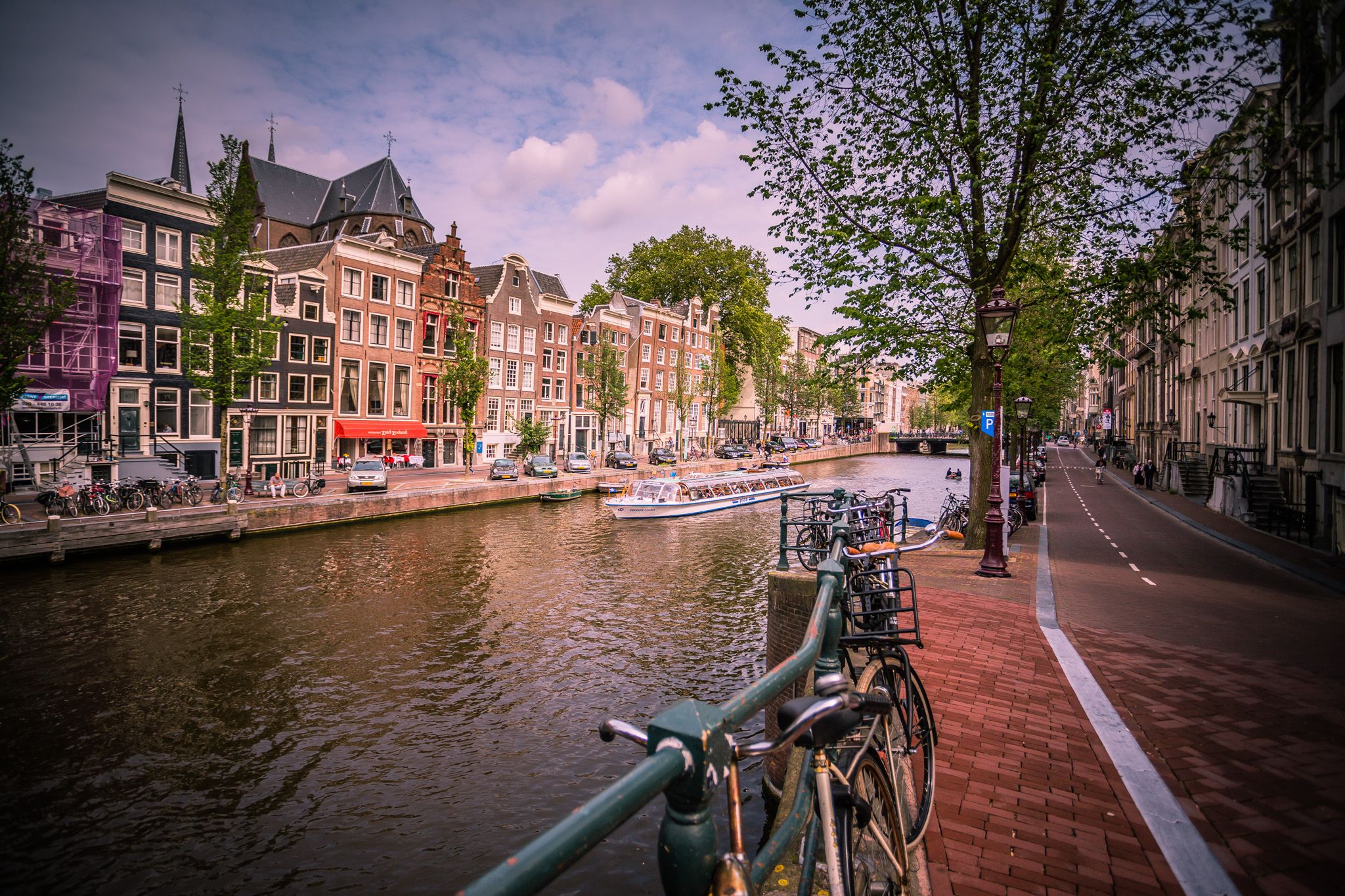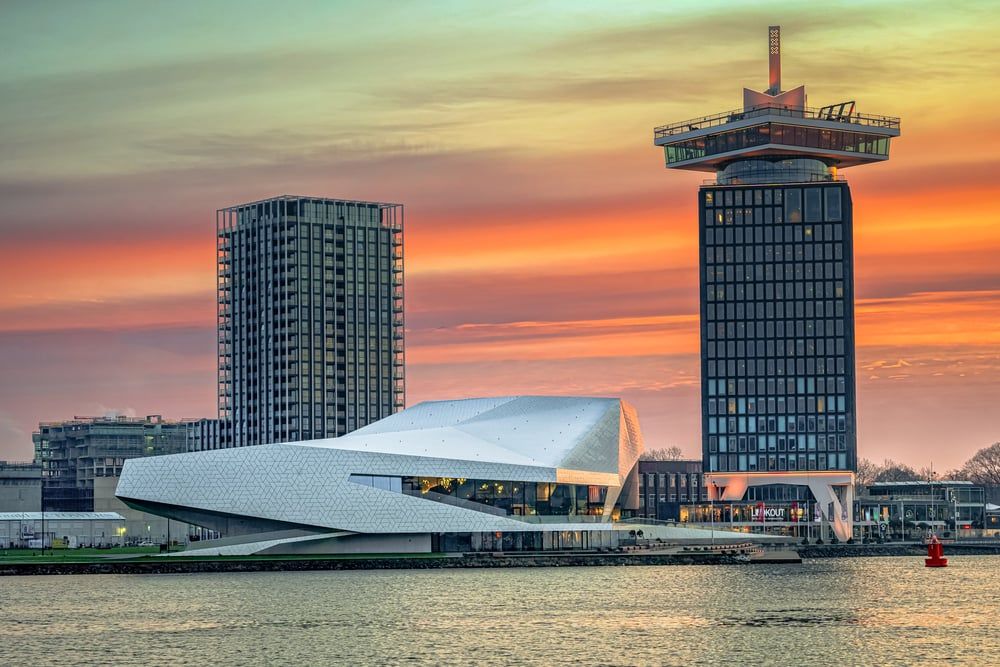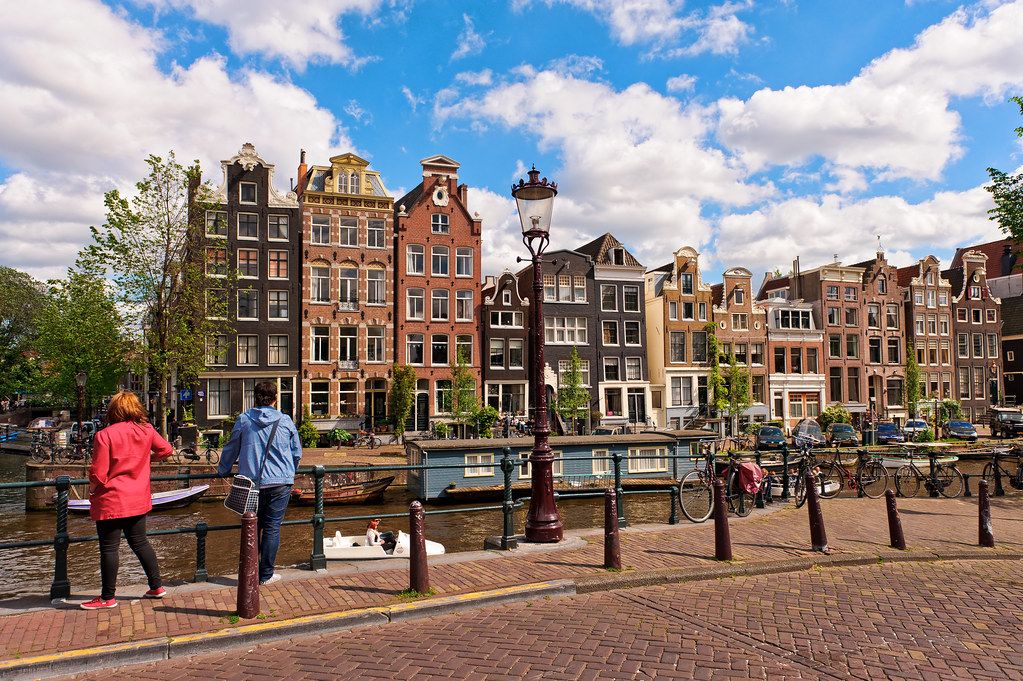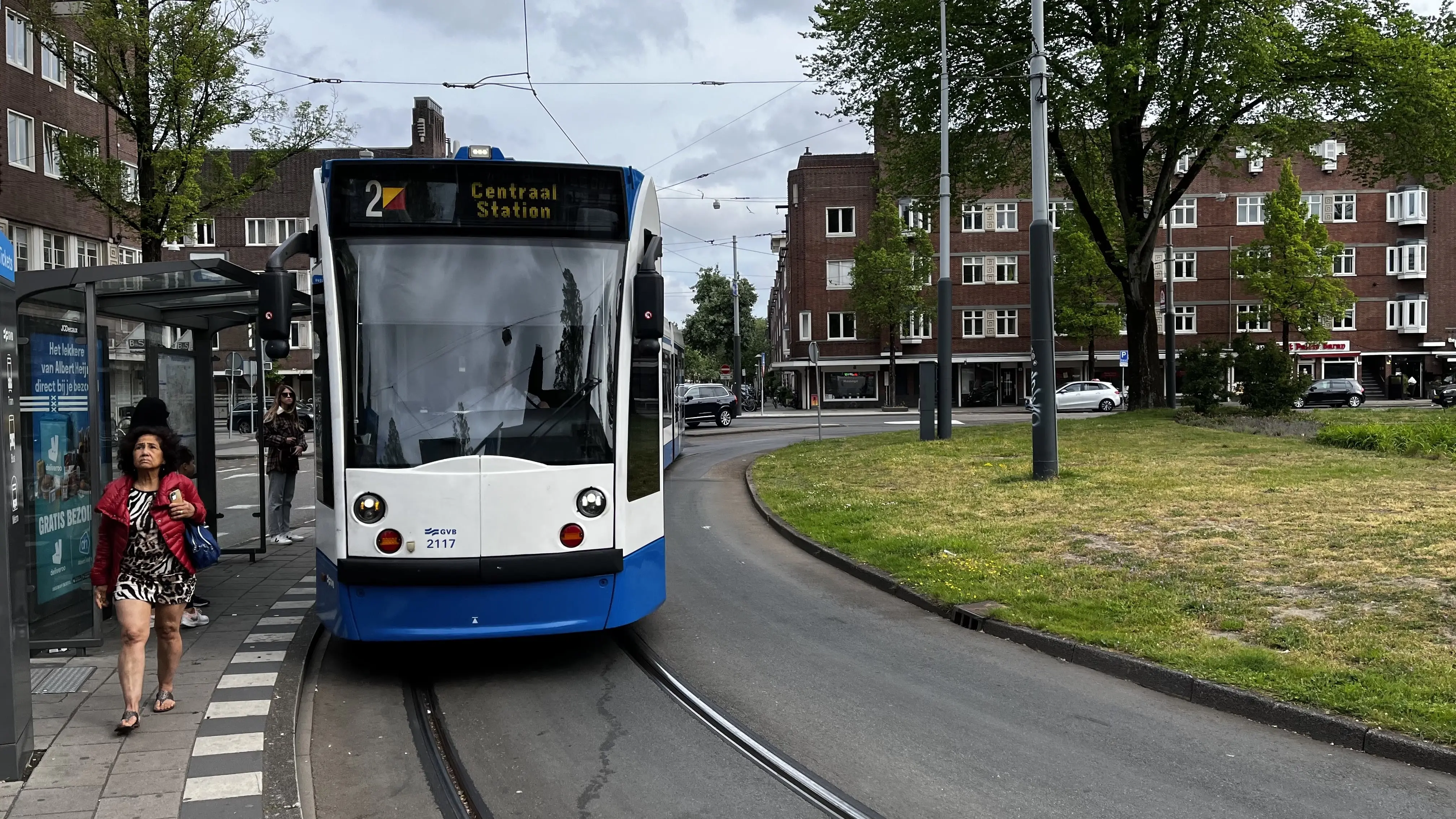Amsterdam, with its picturesque canals, rich history, and vibrant culture, has long been a popular destination for British expats. Known for its progressive attitudes, excellent quality of life, and international outlook, the Dutch capital offers a unique blend of old-world charm and modern innovation. However, relocating to the Netherlands from the UK comes with its own set of challenges and considerations, particularly in the post-Brexit era.
This guide will walk you through every aspect of moving from the UK to Amsterdam, from navigating the Dutch immigration system to finding your perfect canal-side apartment. Whether you're drawn by career opportunities, educational pursuits, or simply the allure of Dutch gezelligheid (cosiness), this article will equip you with the knowledge and resources needed to make your transition to life in Amsterdam as smooth as possible.
Understanding Amsterdam
Geography and Climate
Amsterdam is the capital and most populous city of the Netherlands, located in the province of North Holland. Built on a network of canals, the city is famously flat and below sea level in many areas.
The climate is temperate maritime, characterised by:
- Cool summers with average highs around 22°C (72°F) in July and August
- Mild winters with average lows around 1°C (34°F) in January and February
- Frequent rainfall throughout the year, with an average of 170 rainy days annually
- Unpredictable weather, often experiencing "four seasons in one day"
Demographics
Amsterdam is home to approximately 870,000 people (as of 2024), with nearly half of the population being of non-Dutch origin. This diversity contributes to the city's cosmopolitan atmosphere and international outlook.
City Layout
Amsterdam is divided into several districts, each with its own character:
- Centrum (City Centre): The historic heart, including the famous Canal Ring
- Noord (North): A rapidly developing area across the IJ river
- Zuid (South): Home to many museums and upscale neighbourhoods
- Oost (East): A diverse area with a mix of residential and cultural attractions
- West: A blend of residential areas and trendy neighbourhoods
Economy and Innovation
Amsterdam boasts a diverse economy with strengths in:
- Financial services
- Technology and startups
- Creative industries
- Tourism
- Logistics and trade
The city is also known for its commitment to sustainability and innovation, particularly in areas like clean energy and circular economy initiatives.

Visa and Residency Requirements
Post-Brexit, UK citizens no longer have the automatic right to live and work in the Netherlands. The process for moving to Amsterdam now involves more paperwork and planning.
Short-term Stays
For visits up to 90 days within any 180-day period:
- UK passport holders can enter the Netherlands visa-free
- This allows for tourism, business meetings, or job interviews, but not paid work
Long-term Residency
For stays longer than 90 days, you'll need to apply for a residence permit. The type of permit depends on your reason for moving:
- Work Permit:
- Required for most employment situations
- Usually applied for by your employer
- Tied to a specific job and employer
- Highly Skilled Migrant Visa:
- For those meeting salary thresholds and skill requirements
- Offers more flexibility than a standard work permit
- Allows for family reunification
- Dutch American Friendship Treaty (DAFT) / Self-employed:
- For freelancers and entrepreneurs
- Requires a solid business plan and proof of sufficient funds
- Study Visa:
- For those enrolled in Dutch educational institutions
- Allows part-time work alongside studies
Application Process
- Secure a job offer or university placement (if applicable)
- Employer or educational institution starts the application process with the IND (Immigration and Naturalisation Service)
- Apply for a long-stay visa (MVV) at the Dutch embassy in London
- Upon arrival, collect your residence permit from the IND
Registration
Once in Amsterdam, you must register with the local municipality (Gemeente) within 5 days of arrival. This process includes:
- Providing proof of address
- Showing your birth certificate (apostilled and translated)
- Registering for a BSN (Burgerservicenummer) - similar to a National Insurance number
Useful Resources
- IND Website: Official source for all immigration and naturalisation information
- Netherlands and You: Information for UK nationals moving to the Netherlands
- I Amsterdam: Practical information for new residents
Always check the most up-to-date information from official sources, as immigration policies can change. Consider seeking advice from a registered immigration lawyer if your case is complex.
Get a
Free Quote
in seconds
Moving has bever been this simple with Deliver1
Healthcare System
The Dutch healthcare system is known for its high quality and accessibility. However, it operates differently from the NHS, and understanding these differences is crucial for your well-being and financial planning.
Health Insurance
Unlike the UK's NHS, health insurance is mandatory in the Netherlands:
- Basic health insurance (basisverzekering) is compulsory for all residents
- You must arrange this within 4 months of arrival or face fines
- Costs around €100-€120 per month for an individual
- Covers most essential medical care
Additional points:
- You can opt for supplementary insurance (aanvullende verzekering) for services not covered by basic insurance
- There's an annual deductible (eigen risico) of at least €385 (as of 2024) before insurance kicks in
- Some employers offer corporate health insurance schemes
Healthcare Providers
- General Practitioners (huisarts) are the first point of contact for most health issues
- You need to register with a local GP upon arrival
- Referrals from GPs are required for most specialist care
Emergency Care
- For emergencies, call 112
- A&E departments (Spoedeisende Hulp) are for genuine emergencies only
- For urgent but non-life-threatening issues, contact your GP or the after-hours GP service (huisartsenpost)
Pharmacies (Apotheek)
- Prescription medications are only available from pharmacies
- Over-the-counter medications are available at drugstores (drogist)
Mental Health Services
- Mental health care is generally covered by basic insurance
- Services include psychologists, psychiatrists, and counsellors
- Some employers offer employee assistance programmes
Maternity Care
- The Netherlands is known for its excellent maternity care
- Home births are common and well-supported
- Postpartum care includes home visits from a maternity nurse (kraamzorg)
Dental Care
- Basic dental care for children under 18 is covered by basic insurance
- Adults typically need supplementary insurance for dental care
Useful Resources
Remember to inform your UK GP of your move and request a summary of your medical records. While adjusting to the Dutch healthcare system may take time, most expats find it efficient and of high quality.

Employment Landscape
Amsterdam offers a dynamic job market with opportunities across various sectors. Its position as a global business hub makes it attractive for international professionals, including those from the UK.
Key Industries
- Financial Services:
- Amsterdam is a major financial centre
- Home to the Amsterdam Stock Exchange, the oldest in the world
- Many international banks and fintech companies have offices here
- Technology and Startups:
- Thriving tech scene with companies like Booking.com and Adyen
- Numerous startups and scale-ups in areas like AI, blockchain, and sustainable tech
- Creative Industries:
- Strong presence in advertising, design, and media
- Home to international advertising agencies and media companies
- Life Sciences and Health:
- Growing biotech and pharmaceutical sector
- Research institutions and health tech companies
- Logistics and Trade:
- Strategic location makes Amsterdam a key logistics hub
- Port of Amsterdam and Schiphol Airport drive trade and transportation jobs
Job Search Strategies
- Online Job Boards:
- Recruitment Agencies:
- Many specialise in placing international talent
- Examples include Undutchables and Adams Multilingual Recruitment
- Networking:
- Join professional associations and attend industry events
- Expatica and InterNations host regular networking events for expats
- Company Websites:
- Many large employers list vacancies on their career pages
- Useful for targeting specific companies
Work Culture
- Generally less hierarchical than the UK
- Direct communication is valued and expected
- Work-life balance is important, with part-time work common
- Punctuality is highly regarded
Employment Rights
- Statutory minimum of 20 vacation days per year for full-time employees
- Additional 'holiday allowance' of 8% of annual salary
- Strong worker protections, including for part-time employees
Taxes
- Progressive income tax system
- 30% tax ruling available for some highly skilled migrants, offering significant tax advantages
Language Requirements
- Many international companies use English as their working language
- Dutch proficiency can be an advantage, especially for customer-facing roles and long-term career prospects
Useful Resources
- UWV: The Dutch Employee Insurance Agency, provides information on employment rights
- Expatica Jobs: Job listings and career advice for expats
- I Am Expat: Resources for job seekers in the Netherlands
Remember to ensure your visa allows you to work in the Netherlands. Start your job search well in advance of your move, and be prepared to adapt your CV and interview style to Dutch expectations.
Housing and Neighbourhoods
Finding suitable accommodation is often one of the biggest challenges for newcomers to Amsterdam. The housing market is competitive, and prices can be high, especially in popular areas.
Types of Housing
- Apartments (Appartementen):
- Most common type of housing in Amsterdam
- Often in historic buildings or modern developments
- Houses (Huizen):
- Less common in the city centre
- More available in outer neighbourhoods and suburbs
- Houseboats (Woonboten):
- Unique Amsterdam living experience
- Limited availability and often expensive
Renting vs. Buying
- Renting is most common for newcomers
- Buying property can be challenging due to high prices and competition
- Non-residents may face restrictions on mortgage options
Renting Process
- Search online platforms like Funda or Pararius
- Contact estate agents (makelaar) for viewings
- Prepare necessary documents (proof of income, employment contract, etc.)
- Sign a tenancy agreement (huurovereenkomst)
- Pay deposit (usually 1-2 months' rent) and first month's rent
Popular Neighbourhoods
- Jordaan:
- Charming, historic area with narrow streets and small canals
- Popular with artists and creatives
- De Pijp:
- Vibrant, multicultural neighbourhood
- Known for its cafes, restaurants, and Albert Cuyp market
- Oud-West:
- Trendy area with a mix of families and young professionals
- Good balance of residential calm and urban amenities
- Amsterdam-Noord:
- Up-and-coming area across the IJ river
- More affordable, with a growing cultural scene
- Oud-Zuid:
- Upscale area with beautiful architecture
- Close to major museums and Vondelpark
Considerations When Choosing a Neighbourhood
- Proximity to work or schools
- Public transport connections
- Local amenities (shops, parks, restaurants)
- Noise levels (some central areas can be very busy)
- Parking availability (if you plan to have a car)
Social Housing
- Subsidised housing for lower-income residents
- Long waiting lists, typically not accessible to new arrivals
Useful Resources
Remember, the Amsterdam housing market moves quickly. Be prepared to make decisions swiftly and have all necessary documents ready when you find a place you like.

Cost of Living and Finances
Understanding the cost of living in Amsterdam is crucial for budgeting and financial planning. While some aspects of life in Amsterdam can be expensive, others may be more affordable compared to major UK cities.
Comparative Costs
Here's a rough comparison of some common expenses between Amsterdam and London (as of 2024):
Expense | Amsterdam (EUR) | London (GBP) | Amsterdam (GBP) |
| Monthly rent (1-bedroom apartment in city centre) | 1,500 | 1,800 | 1,275 |
| Monthly public transport pass | 100 | 180 | 85 |
| Meal at an inexpensive restaurant | 18 | 18 | 15 |
| Cappuccino | 3.50 | 3.50 | 3 |
| 1L of milk | 1.20 | 1.20 | 1 |
| Loaf of bread | 2.50 | 1.10 | 2.10 |
| Monthly utilities (85m2 flat) | 180 | 200 | 153 |
Note: Exchange rate used is 1 EUR = 0.85 GBP (April 2024)
Housing Costs
- Typically the largest expense
- Renting: 30-50% of income is common
- Buying: Average apartment prices in Amsterdam are around €500,000 (£425,000) as of 2024
Groceries and Dining Out
- Supermarket prices are generally comparable to the UK
- Dining out can range from affordable (€15 for a meal in a casual restaurant) to expensive (€50+ per person in a high-end restaurant)
Transportation
- Public transport is efficient and relatively affordable with an OV-chipkaart
- Cycling is a cost-effective and popular mode of transport
- Car ownership in the city centre can be expensive due to parking costs
Utilities and Internet
- Energy costs can be high, especially in older buildings
- Internet and mobile plans are generally affordable
Healthcare
- Basic health insurance is mandatory, costing around €100-€120 per month
Education
- Public schools are free for residents
- International schools can be expensive, with annual fees ranging from €15,000 to €25,000
Taxes
- Income tax rates are progressive, ranging from 37.07% to 49.50% (as of 2024)
- 21% VAT (BTW) applies to most goods and services
Banking and Finance
- Opening a Bank Account:
- Can often be done before arriving in the Netherlands
- Major banks: ING, ABN AMRO, Rabobank
- Online banks like Bunq and N26 are popular among expats
- Required documents: passport, residence permit, BSN number, proof of address
- Citizen Service Number (BSN):
- Essential for working, opening a bank account, and accessing healthcare
- Obtained when registering with the municipality
- Credit Cards:
- Less commonly used than in the UK
- Debit cards (PIN cards) are the primary method of payment
- Mortgages:
- Available to expats, but may have stricter requirements
- 30% tax ruling can be advantageous for mortgage applications
Money Transfer
- Use specialist forex services for better rates on large transfers
- Consider multi-currency accounts offered by some online banks
Useful Resources
- Nibud: Independent foundation providing budgeting advice (in Dutch)
- Belastingdienst: Dutch Tax and Customs Administration
- DNB: Dutch Central Bank, provides financial education resources
While some aspects of life in Amsterdam may be more expensive than in the UK, many expats find that the overall quality of life justifies the costs. Careful budgeting and financial planning will help ensure a smooth transition to your new life in Amsterdam.

Transportation
Amsterdam is renowned for its efficient and diverse transportation system, making it easy to navigate the city and its surroundings without a car.
Cycling
Cycling is an integral part of Amsterdam's culture and often the most efficient way to get around:
- Extensive network of dedicated cycle paths
- Bike rental services available throughout the city (e.g., Swapfiets for long-term rentals)
- Consider purchasing a second-hand bike for daily use
- Always lock your bike securely and be aware of cycling rules and etiquette
Public Transport
Amsterdam's public transport system is comprehensive and user-friendly:
- Trams:
- Extensive network covering most of the city
- Frequent service and convenient for short to medium distances
- Metro:
- Five lines connecting the city centre with outer districts
- Fastest option for longer distances within the city
- Buses:
- Complement the tram and metro network
- Night buses operate when other services are closed
- Ferries:
- Free service across the IJ river to Amsterdam Noord
OV-chipkaart:
- Reloadable smart card used for all public transport in the Netherlands
- Available as anonymous or personal cards
- Can be topped up at stations or linked to your bank account for automatic reloading
Trains
- Excellent connections to other Dutch cities and international destinations
- Amsterdam Centraal is the main hub, with frequent services to Schiphol Airport
Driving
- Not necessary for daily life in Amsterdam
- Parking in the city centre is expensive and limited
- Consider car-sharing services like Greenwheels for occasional use
Taxis and Ride-sharing
- Taxis are available but can be expensive
- Ride-sharing apps like Uber operate in Amsterdam
Useful Resources
- GVB: Amsterdam's public transport company
- NS: Dutch national railway service
- 9292: Journey planner for all public transport in the Netherlands
Education System
Amsterdam offers a range of educational options, from local Dutch schools to international institutions, catering to the city's diverse population.
School System
- Compulsory education from age 5 to 16
- Optional two years of pre-school (voorschool) from age 2
- School year typically runs from August/September to June/July
Types of Schools:
- Public Schools (Openbare scholen):
- Free for residents
- Teach in Dutch
- Follow the national curriculum
- Special Schools (Bijzondere scholen):
- Based on religious or educational philosophies (e.g., Montessori, Waldorf)
- May have small fees
- Also follow the national curriculum
- International Schools:
- Teach in English or other languages
- Follow international curricula (e.g., International Baccalaureate)
- Higher fees, but some subsidised options available
School Levels
- Primary Education (Basisonderwijs): Ages 4-12
- Secondary Education (Voortgezet onderwijs): Ages 12-18
- VMBO: Preparatory secondary vocational education
- HAVO: Senior general secondary education
- VWO: Pre-university education
Higher Education
Amsterdam hosts several renowned institutions:
- University of Amsterdam (UvA)
- Vrije Universiteit Amsterdam (VU)
- Amsterdam University of Applied Sciences (HvA)
Many programmes are offered in English, making them accessible to international students.
Language Considerations
- Dutch public schools teach in Dutch, but many offer additional support for non-native speakers
- Some schools offer bilingual programmes
- International schools teach primarily in English
Useful Resources
- DUO: Education Executive Agency, information on Dutch education system
- Educacion.nl: Comparison of schools in Amsterdam
- Nuffic: Organisation for internationalisation in education
Get a
Free Quote
in seconds
Moving has bever been this simple with Deliver1
Dutch Language and Culture
While it's possible to live in Amsterdam using only English, learning Dutch can significantly enhance your experience and integration into local life.
Learning Dutch
- Many language schools and courses available, both in-person and online
- Free language courses often offered by the municipality for new residents
- Apps like Duolingo or Babbel can be useful for self-study
Dutch Culture
- Known for directness and informality
- Strong emphasis on consensus and 'gezelligheid' (cosiness/togetherness)
- Egalitarian society with a 'doe normaal' (act normal) attitude
Cultural Events
- King's Day (27 April): National holiday with citywide celebrations
- Amsterdam Pride: Large LGBTQ+ festival and canal parade
- Amsterdam Light Festival: Winter event with light art installations
Etiquette Tips
- Punctuality is highly valued
- Dutch people often split bills in restaurants
- Cycling etiquette is important - follow traffic rules and use hand signals
Useful Resources
Preparing for the Move
Proper preparation is key to a smooth transition to life in Amsterdam.
Checklist
- Visa/Residency: Ensure you have the necessary permits
- Housing: Arrange temporary or permanent accommodation
- Employment: Secure a job or have a job search strategy
- Healthcare: Arrange health insurance
- Finances: Inform UK bank of move, research Dutch banking options
- Education: If applicable, research and apply to schools
- Pets: Check requirements for bringing pets into the Netherlands
- Shipping: Arrange shipping of household goods
- Documents: Gather important documents (birth certificates, qualifications, etc.)
- Utilities: Research Dutch providers for electricity, internet, etc.
- Taxes: Inform HMRC of your departure from the UK
Timeline
- 6-12 months before: Start visa application process, job search
- 3-6 months before: Secure housing, arrange shipping
- 1-3 months before: Set up health insurance, notify relevant UK authorities
- 1 month before: Confirm all travel arrangements, pack essentials
Useful Resources
Settling In
Once you arrive in Amsterdam, these steps will help you establish your new life:
- Registration: Register with the municipality within 5 days of arrival
- BSN: Obtain your Citizen Service Number
- Bank Account: Open a Dutch bank account
- Healthcare: Register with a local GP
- Transportation: Get an OV-chipkaart and consider buying a bicycle
- Language: Start Dutch lessons if desired
- Social Life: Join expat groups or local clubs to meet people
- Explore: Familiarise yourself with your neighbourhood and the city
Remember, settling into a new country takes time. Be patient with yourself and open to new experiences. Amsterdam's international character means you'll likely find a welcoming community as you adjust to your new home.
Moving to Amsterdam from the UK is an exciting adventure that offers numerous opportunities for personal and professional growth. While challenges may arise, the city's welcoming atmosphere, excellent quality of life, and rich cultural offerings make it a rewarding destination for expats. With careful planning and an open mind, you'll soon find yourself cycling along the canals, sipping coffee in cozy brown cafés, and embracing the unique charm of Dutch life.
If you're ready to take the next step, get a quick and free quote from Deliver1 and let us handle the move! We'll promise to make it as stress-free as apossible!





